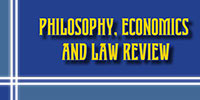Viktoriia SHCHERBACHENKO, Anna Diana SLIUSARENKO, Artem ARTYUKHOV
SHCHERBACHENKO V., SLIUSARENKO A. D., ARTYUKHOV A. (2023), RECOMMENDATIONS ON COMPULSORY ONLINE LEARNING FOR EDUCATIONAL INSTITUTIONS DURING WARTIME ON THE BASIS OF THE BEST INTERNATIONAL PRACTICES.
PHILOSOPHY, ECONOMICS AND LAW REVIEW. Volume 3, no. 2, 122-136
DOI: 10.31733/2786-491X-2023-2-122-136
Abstract. The purpose of this article is to research and summarize the best international experience for the development of recommendations for compulsory online education in Ukraine. To achieve this goal, a detailed analysis of a number of scientific publications devoted to the study of advanced distance learning practices among countries that faced similar challenges due to military conflicts or a global pandemic was conducted. Various aspects were investigated, including the structure and content of distance learning, the development of technological platforms for the educational process, ensuring the physical and psychological safety of participants in the educational process, as well as the development of innovative approaches to learning and developing the competencies of students and pupils.
As a result of the analysis, key aspects and directions were identified that can contribute to the successful implementation of the set goal. The experience of such advanced countries as Israel, South Korea, Singapore, Finland and Estonia was studied. Areas for improving the process of forced online education and the future educational process in Ukraine as a whole have been identified. Based on the studied material, recommendations are given regarding possible future implementations in the education system of Ukraine.
The need for a comprehensive approach to ensuring the identified aspects of education requires investments in the construction of protective structures, strengthening of the existing infrastructure and the creation of safe spaces for educational activities. Also, the need to equip the technical infrastructure for the effective implementation of distance learning was mentioned. This includes the development and maintenance of educational platforms, provision of Internet access, creation of online resources and availability of learning tools. The importance of creating psychological and professional support centers for students and teachers was outlined. The creation of education and management platforms could simplify the administrative complexities for education workers and establish communication between different stakeholders in education, including students, parents, teachers and senior management. The importance of introducing the subject of cyber security into the educational process from an early age was also noted. At the level of higher education, the need for a gradual shift from a teacher-centered approach to a student-centered approach, with an emphasis on the development of practical competencies and skills in students necessary for life in the real world, is becoming apparent.
Keywords: military conflict, compulsory online learning, education system, cybersecurity, higher education, digitalization, educational programmes, educational initiatives.
References
- Bekerman, Z. (2023). Peace education in conflict zones: General trends and Israeli particularities. International Encyclopedia of Education(Fourth Edition), 94-103. DOI :10.1016/b978-0-12-818630-5.01017-4.
- Bekerman, Z., & Zembylas, M. (2014). Some reflections on the links between teacher education and peace education: Interrogating the ontology of normative epistemological premises. Teaching and Teacher Education, 41, pp. 52-59. DOI : 10.1016/j.tate.2014.03.002.
- Byun, S., & Slavin, R. (2020). Educational responses to the COVID-19 outbreak in South Korea. Best Evidence in Chinese Education, 5(2), pp. 665-680. DOI : 10.15354/bece.20.or030.
- Choi, S. (2021). The impact of education levels and paths on labor market outcomes in South Korea: Focusing on vocational high school graduates. Social Sciences & Humanities Open, 4(1), pp. 100-152. DOI : 10.1016/j.ssaho.2021.100152.
- Cyber security education in Estonia: From kindergarten to NATO cyber defence centre. (2022, March 30). URL : https://www.educationestonia.org/cyber-security-education-in estonia/.
- Education is under threat. (2022). URL : https://saveschools.in.ua/. [In Ukr.].
- Hakamies, K. (2019). Tutor teachers – developers of the school community. URL : https://jyunity.fi/en/science-news/tutor-teachers-developers-of-the-school-community/.
- How did Estonia become a new role model in digital education? (2020, May 3). URL : https://www.educationestonia.org/how-did-estonia-become-a-new-role-model-in digital-education/.
- Kikkas, K., & Lorenz, B. (2020). Training young cybersecurity talents – The case of Estonia. Communications in Computer and Information Science, pp. 256-263. DOI: 10.1007/978- 3-030-50729-9_36.
- Lavonen, J. (2018). Educating professional teachers in Finland through the continuous improvement of teacher education programmes. Contemporary Pedagogies in Teacher Education and Development. Doi : 10.5772/intechopen.77979.
- National Institute for Strategic Studies. (2022). The Ukrainian system of higher education in the conditions of military aggression of the Russian Federation: problems and prospects for development. URL : https://niss.gov.ua/news/statti/ukrayinska-systema-vyshchoyi osvity-v-umovakh-voyennoyi-ahresiyi-rf-problemy-y. [In Ukr.].
- OCHA. Ukraine Data Explorer. URL : https://data.humdata.org/visualization/ukraine humanitarian-operations/.
- Shmis, T., Sava, A., Teixeira, J. & Patrinos, H. (2020). Response note to COVID-19 in Europe and Central Asia: Policy and practice recommendations. World Bank Group. URL : https://thedocs.worldbank.org/en/doc/862141592835804882-0090022020/original/ ECAEducationResponseNotev9final.pdf.
- Student care centres in Singapore. URL : https://skoolopedia.com/student-care-centres-in singapore-infographic-2/.
- Teng, A. (2020). Parliament: about 96 % of students took part in full home-based learning. The Straits Times. URL : https://www.straitstimes.com/politics/parliament-about-96-of students-took-part-in-full-home-based-learning.
- The Israel Innovation Authority. Enhancing educational technologies. A human study partner in digital learning. URL : https://innovationisrael.org.il/en/reportchapter/enhancing educational-technologies.
- Vered, S. (2016). Peace education between theory and practice: The Israeli case. Peace Psychology Book Series, pp. 199-213. DOI : 10.1007/978-3-319-24841-7_13.
- Yang, Y. (2015). Is South Korean education excellent or out of touch? The East Asia Foundation, 10(2). URL : https://www.globalasia.org/v10no2/cover/is-south-korean-education excellent-or-out-of-touch_young-yu-yang.
